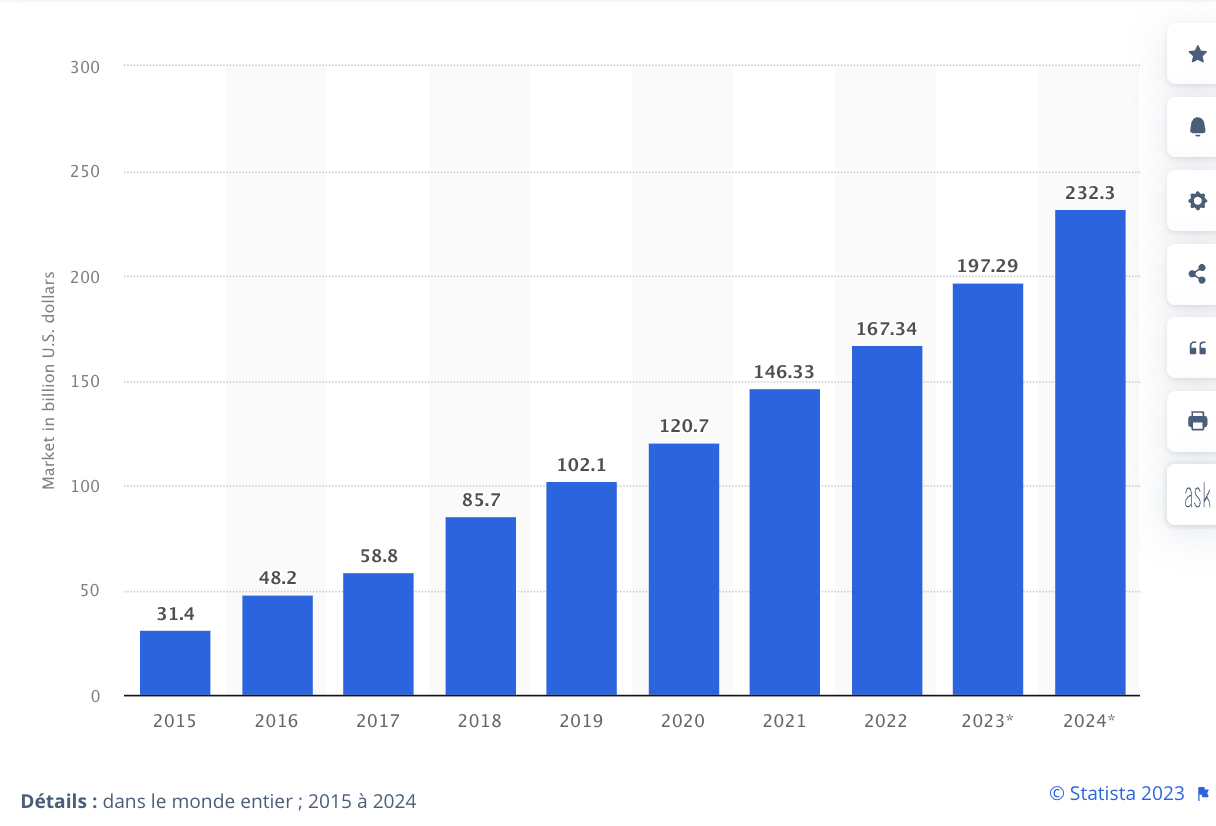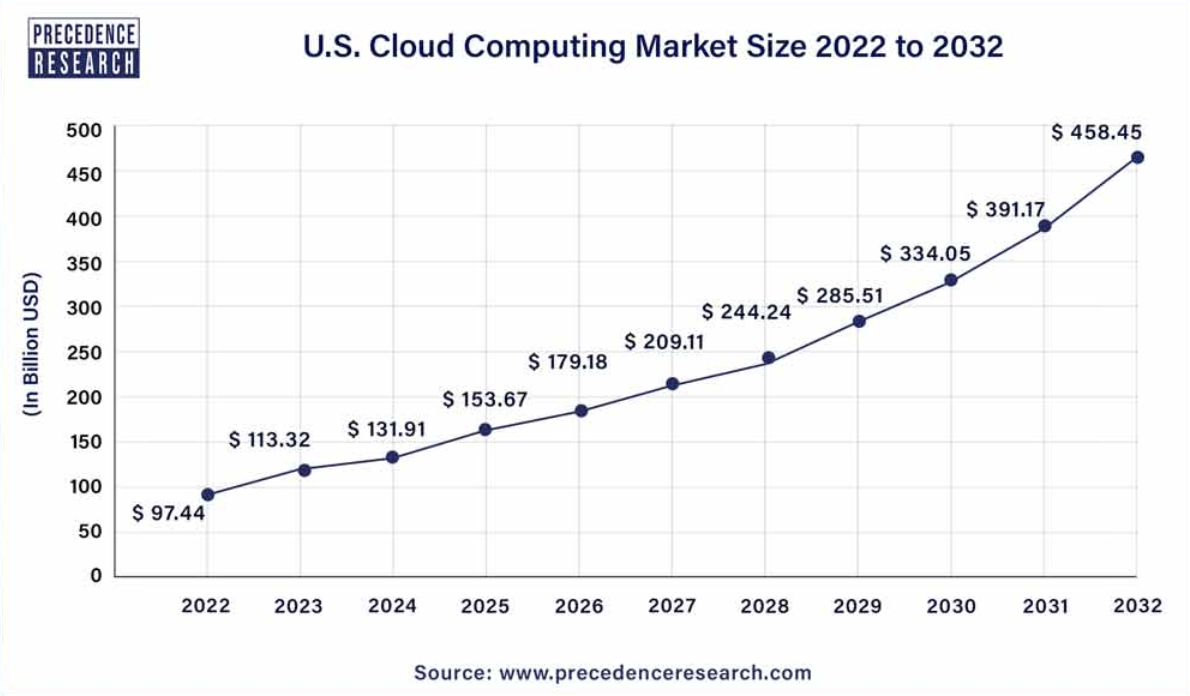Cloud Computing? What does it mean?
Put simply, cloud computing is the delivery of IT services (servers, storage, databases, networking, software, analysis tools) via the Internet, with the aim of providing more flexible resources for people and businesses.
When a company "moves to the cloud", it means that its IT infrastructure is stored off-site, in a data center ("datacenter" in the language of Shakespeare) managed by the cloud provider. For the curious, here are the world's thirteen largest data centers in 2023: here
Cloud computing enables businesses and consumers to store and process data away from their own physical hardware. This data is stored on a network of remote servers, known as the "cloud".
A simple example at consumer level might be Apple's "ICloud" service. The Apple brand's Cloud service enables users to save their Iphone data in the Cloud and then retrieve it on another Internet-connected device, such as their computer or tablet. This means that data is no longer limited to the data storage capacity of the smartphone in question.
Some figures on the Cloud Computing sector?
The figures quoted below are taken from two recent studies, one published by Statista Market Insight, the other by Precedent Research.
The global market for public cloud computing continues to grow, and is expected to reach around US$490 billion by 2022. This includes business processes, platforms, infrastructure, software, management, security and advertising services provided by public cloud services.

End-user spending on public cloud services worldwide from 2017 to 2023
Statista
In 2023, the value of the software-as-a-service (SaaS) market is estimated at around US$197 billion, and is expected to reach US$232 billion by 2024.


How to play this trend with an ETF: First Trust Cloud Computing ETF (SKYY)
The First Trust Cloud Computing UCITS ETF Acc tracks the ISE Cloud Computing Index. The ISE Cloud Computing Index tracks companies involved in the Cloud Computing industry.
It follows a physical replication strategy, i.e. it buys the components of the index to replicate its performance. The ETF's top ten components, representing 38.43% of its 64 positions, are as follows:
Pure Storage (4.45%), Arista Networks (4.11%), Amazon (4.01%), Intel (4.00%), Oracle (3.98%), Alphabet (3.88%), Mongodb (3.79%), Nutanix (3.68%), Microsoft (3.50%), Applovin (3.03%).
Of these 64 companies, most are American (92.08%). The remaining 8% are mainly shared between Canadian (2.60%) and Israeli (1.51%) companies. Since its inception in September 2018, the ETF has returned 54.39%. The ETF's dividends are capitalized and reinvested in the ETF.
ETF highlights
- This ETF offers an opportunity for investors looking to capitalize on the expansion of the cloud computing industry. With the increasing adoption of companies opting for solutions related to this industry, the SKYY ETF offers a convenient way to gain exposure to this market.
-
SKYY has performed strongly in both absolute and relative terms.

- Fees are low (0.60%).
- The ETF has a European passport (UCITS) and can therefore also be purchased there on a securities account.
Negative points
- Concentrated sector risk: Cloud Computing ETFs are sector-specific, which means investors are exposed to higher risk if the cloud computing industry undergoes a downturn or is affected by regulatory, technological or competitive changes.
- Bubble risk: With the enthusiasm surrounding information technology and cloud computing, there is a risk that the valuations of companies included in the ETF may become excessively inflated, leading to a possible correction.
- Response to market news: This ETF can be rapidly affected by macroeconomic news or technological trends, which can cause instability in terms of performance.
- Regulatory changes: cloud companies often operate in a rapidly evolving regulatory environment, particularly with regard to data protection, online security and privacy. Laws such as the RGPD (General Data Protection Regulation) in the European Union have important implications for cloud companies.
ETF identity card
Benchmark: ISE Cloud Computing
Number of positions at 07/11/2023: 64
Ticker code: SKYY
ISIN code: IE00BFD2H405
Fees: 0.60

 By
By 













